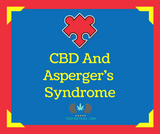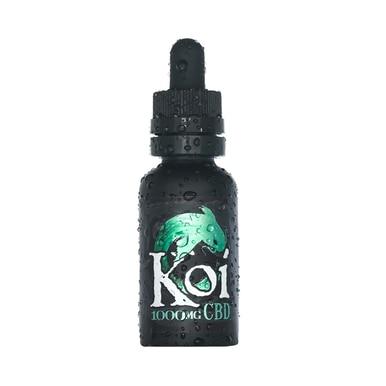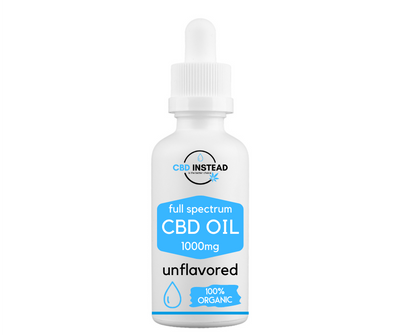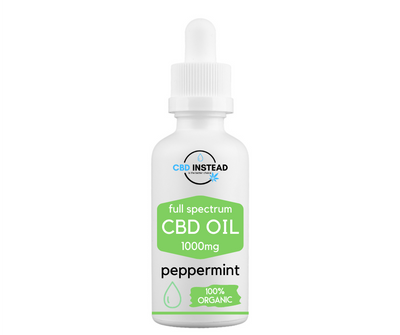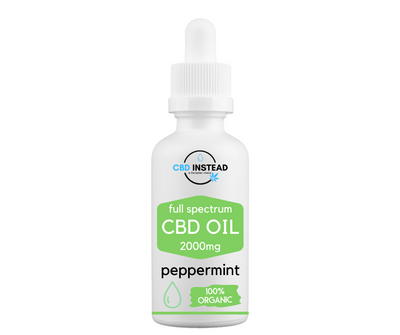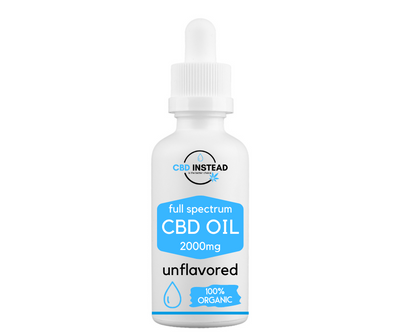Have you ever been to a shelter or pound before? When looking for a second dog, I remember walking in and my eyes immediately began to tear up. Rows of kennels with sad dogs sitting at the gate begging with their adorable puppy dog eyes for me to take each and every one of them home. We ended up pulling a dog off the street that was hanging around eating trash with his rib cage sticking out, and if it weren’t for CBD dog treats, training my rescue pup would have been a lot more difficult.
Cannabidiol (CBD) interacts with the endocannabinoid system which all of us have, including our furry family member. When you rescue an animal, whether it's from a shelter, abusive home, or like me, off the street, they are going to come with some baggage. But this baggage also has a lot of personality and love to give, which makes the experience all worthwhile.

Common Issues With Rescue Pets
Aggression
My dog Sawyer used to live on the streets, making him very aggressive about protecting his food because he might not be used to not having to fight for it. In the shelter, there may be dogs who get bullied by other dogs, and it has turned them cold and callus. Some pets may see a specific type of person as a threat because someone who looked like them used to beat them, turning your new pet’s fear into anger.
Fearfulness
Not every cat and dog in the shelter comes from a good home that just couldn’t keep them anymore. Some pets have been beaten and abused by their owners or experienced things that are traumatic enough to instill fear. A fearful dog can be a problem because they might try to run away, even if it means chewing the door open.
Trouble Socializing
If a dog is older and hasn’t been properly socialized, they may not do well with other dogs. They may see them as a threat and attack. Cats may arch their back at the sign of any living thing warning them to stay away, or an attack is imminent because they aren’t used to other animals being a friend instead of foe.
Eliminating Indoors
If you bring your new dog home, they might start marking their territory. They also may be stressed out which leads to defecating on your rug. Your cat may see the litter box, smell the litter box, and decide right next to the litterbox is the best place to go.
Destructive Behavior
When I got my dog, he chewed the TV remote, a couch cushion, marimba mallets, a bible, cardboard boxes, a dog food bag, pens, pencils, my makeup bag, two door frames, and the back of my wedding dress. Don’t worry, after the wedding. Dogs can get anxious when you leave or from being in new surroundings and go to town on anything they can reach. They also may still not understand that food is going to come around again, and try to find more nutrients in the world around them. Your cat may take solace in ripping up your carpet or destroying your brand new leather couch, easing their anxieties with their new favorite scratching post.
Separation Anxiety
They have been left alone for so long, you can’t possibly leave them now! Many pets have to be put in a crate when left home alone, or they will destroy the house from chewing to urinating. You may come home to all of your clothes smelling like cat pee or, like me, pages of a book covering every inch of your floor.
How CBD May Be Able To Help
The majority of the issues that come from rescue pets derive from anxiety. This anxiety that they have built up because they have gone through traumatic events. Can you imagine sleeping outside in the rain or being picked up by a strange human and brought to an unfamiliar place in cage to sit in alone? CBD may be able to help with this anxiety because of its interaction with the endocannabinoid system.

What Is The Endocannabinoid System?
You and your pet both have an endocannabinoid system. All mammals do so if your rescue is a horse, you still fit right in. This system is how our bodies stay regulated like keeping a healthy temperature and making sure cuts clot instead of bleed out. It does more than just regulate our physical health; it also helps to control our mental health as well.
Parts Of The Endocannabinoid System
Cannabinoid Receptors
You have cannabinoid receptors all over your body, and so do your pets. We know of two, the CB1 and CB2 receptor, though a third cannabinoid receptor may be a possibility. These receptors are used to help mediate functions in your body by binding to endocannabinoids that are produced in your body.
Endocannabinoids
Your brain makes these chemicals called endocannabinoids to help regulate your body. Anandamide binds to the CB1 receptor which helps to mediate your neurological functions like your sensitivity to pain, mood, appetite, and sleep cycle. The endocannabinoid 2-AG mainly binds to the CB2 receptor helping to regulate the immune functions of you and your pet’s body.
Cannabidiol and Anxiety
If your pet is showing these issues common in rescue animals, they may be suffering from PTSD or other related anxiety disorders. When you have anxiety, your brain is confused and is continually sending signals of fear giving that pit of the stomach anxious feeling. Cannabidiol may be able to help your pet by reducing this overactivity.
The Hippocampus and Amygdala
To fully understand how CBD can help with your rescue pet’s anxiety, you need to know what is going on in their brain to make them react the way that they are. The key parts of the brain that are associated with anxiety in both humans and our pets are the hippocampus and the amygdala.
Both of these areas in the brain are a part of the limbic system, which helps control the emotions. The hippocampus is primarily focused on memory while the amygdala is a part of the fear response. When both of these areas of the brain have damage or aren’t functioning correctly, it can cause symptoms of PTSD.
The hippocampus makes your dog associate senses like smell and sight to memories they have. If their owner used to beat them with a broom, the hippocampus reminds them that the broom is scary and to run for your life.
The amygdala is what triggers the fear response. If their amygdala is malfunctioning, it may see things as a threat that are completely safe, like being left home alone. Your pet may be jumpy or skittish because their brain is always on high alert to keep them safe.
When your pet undergoes stress, like being left to their own devices in the wild, being left in a kennel alone or experiencing abuse, the amygdala and hippocampus are exposed to a chemical called cortisol which can cause damage making the limbic system malfunction.

How CBD May Help Repair Stress-Induced Damage
Studies have shown that cannabidiol can help reduce the damage done to the hippocampus as well as promote neurogenesis assisting the damaged part of the brain heal. Scientists believe this could be a part of CBD hemp oil’s anti-anxiety effects, but it doesn’t stop there.
Because fear and anxiety are also a product of an overactive amygdala, CBD may offer relief because it reduces activity in that part of the brain. This may be in part because of how endocannabinoids travel in the brain, which is through a process called retrograde signaling.
What Is Retrograde Signalling
Typically, when your brain needs to communicate with itself to make you or your pet walk, talk, or feel it uses little electrical pulses that send neurotransmitters from a presynaptic neuron to a postsynaptic neuron. What is interesting about endocannabinoids is that they travel backward, from the postsynaptic neuron to the presynaptic neuron, sending a message from the receiving cell to let the sending cell know if it is delivering the appropriate amount of information.
When your pet has anxiety, their brain is overwhelmingly sending fear signals which can lead to certain unattractive behavioral traits like eliminating on the floor or destroying your property. The endocannabinoid anandamide sends a message to the presynaptic nerves to stop overwhelming the receiving cell, resulting in less activity and less anxiety.
Using CBD For Your Rescue Pet
Training
If your pet is showing signs of aggression, fear, or anxiety, you should look into a pet trainer to help you retrain their behavior. If you continue to let their behavior persist, you may grow a resentment toward your pet, spend more money on your pet than you can afford, or put someone or another pet in danger.
Using CBD treats or CBD oral spray may be able to help the training process. Taking them into a new surrounding or meeting someone new may make them too overwhelmed to pay attention. They can become aggressive to the trainer, other animals, and even you. The CBD may be able to help calm down the activity in their brain that is making them feel threatened, giving you a much more productive training session.
Home Alone
I can’t leave my dog Sawyer home alone without giving him CBD. Of course, I made sure to see if he had any adverse effects to the medication before leaving him alone, and you should too. Watch out for vomiting, diarrhea, drowsiness, or an appetite change which can be very troubling if you have a finicky cat that already has a hard time eating. Once you know that your pet can take CBD hemp oil, and you have discussed it with your vet, you can give them a little treat or spray to help put them at ease while you are gone.
Overall Health
When you get a rescue, they may also come along with health problems or be more prone to them. CBD has shown to be good for heart health, energy levels, and may even be able to help prevent arthritis or make it more manageable. Talk to your vet today about using CBD hemp oil for your rescue pet, and then stop by our shop to pick up some delicious treats for both dogs and cats, or the CBD pet oral spray!














